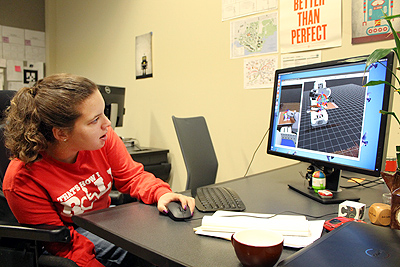Lessons Learned in AccessComputing (AccessComputing News - January 2015)

The UW has received NSF funding for three consecutive grants (CNS-0540615, CNS-0837508, and CNS-1042260) that support the nation-wide AccessComputing alliance. Project activities have led to sustainable structures and practices that make computing disciplines more welcoming and accessible to people with disabilities, including post-9/11 veterans. Project outcomes benefit society by making computing opportunities available to more citizens and by enhancing computing fields with the talents and perspectives of people with disabilities, as well as increasing participant success in college, graduate school, and careers.
Although project efforts are ongoing, it may be beneficial to others to share a few of the things we have learned thus far:
- Motivational activities can recruit students without initial interest, and comprehensive preparation and retention interventions produce more positive outcomes than isolated efforts.
- There is a need for more leaders and role models with disabilities in computing fields.
- The representation of students with disabilities in computing majors and degree completion decreases in higher education levels.
- Institutional change is needed to make computing departments both welcoming and accessible to students with disabilities.
- Change is needed to make IT positions in industry more welcoming and accessible.
- Cooperative efforts between organizations focused on computing and those focused on disability yields positive outcomes.
- New activities benefit from facilitiation by trained staff and funding for initial activities on which institutionalization of these practices can build.
- Students with disabilities face a variety of challenges when transitioning to higher levels of education, as evidenced by low success rates.
- K-12 schools and outreach programs need help in making computing classes more inclusive to students with disabilities. Mainstream computing courses rarely include accessibility/disability topics.
- Alliances for women and minorities are not always aware of how to effectively recruit and support participants with disabilities.